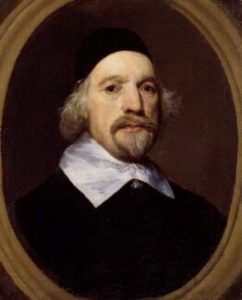Edward Nicholas. SP 14/138 f. 182 (1623)
To the highe and mighty Prince Charles, Prince of Wales, Duke of Cornewall and Yorke, and Earle of Chester etc.
The humble peticion of Edward Nicholas.
In all humblenes beseeching your highnes to vouchsafe to take into your princely consideracion the humble suyte of the right honourable the Lord Zouche (your suppliantes noble lord and master) on the behalf of your peticioner; and to be pleased to graunt unto him the execucion of the office of the receavour of the greenewax under your highnes in such manner as your highnes shall thinke fitt, if your highnes shall dischardge him whome yow have lately imployed therein.
The princely favour your highnes shall doe your humble peticioner, if yow shalbe pleased to vouchsafe him herein a gracious aunsweare, shall for ever oblige him faithfully to serve your highnes with all duty and integrity: and ever binde him to pray unto the almighty for your highnes happines in this and the better worlde.
[paratext:] Copy of my the first peticion I I delivered to the prince. / Which was delivered February 1633 1633 1622
Report by Keith Baldwin
Edward Nicholas (1593-1669)[1] was son of John Nicholas, an attorney of Wiltshire and the Middle Temple. His education included a spell at Oxford, he entered the Middle Temple in 1611 and later entered into Government service.[2]
He fulfilled a number of roles before standing as MP for Winchelsea in 1621, when he was elected. Disaffected by not being chosen to be on any committees he sought by the above petition to advance a stagnating career. The plea was unsuccessful.
His request was for the post of ‘receiver of greenwax’. Greenwax is a term used to cover the enforcement of forfeits and fines given to the Sheriff of the county under a green wax seal.[3] Summons of greenwax were issued by the Clerk of the Estreats and it was the Receiver General’s job to keep a check on the payment of those fines.

Following the retirement of his master Lord Zouche his career did develop and he became involved with Admiralty business ultimately to briefly became Secretary of State. He was knighted on the eve of the civil war and served until the commonwealth victory whereupon he exiled to Jersey. Over the course of his career he kept a diary which reveals the mechanics of parliament at the time and his papers are held at Surrey Archives.[4] More papers have been published by the Camden Society.[5]
A gift of £10,000 from the king after the interregnum enabled him to purchase the manor of West Horsley, Surrey in 1664 where he died in 1669.
References
[1] ‘NICHOLAS, Edward (1593-1669), of Dover Castle, Kent and King Street, Westminster; later of West Horsley, Surr.’ in The History of Parliament: the House of Commons 1604-1629, ed. Andrew Thrush and John P. Ferris, 2010, https://www.historyofparliamentonline.org/volume/1604-1629/member/nicholas-edward-1593-1669
[2] Baron, S. A. “Nicholas, Sir Edward (1593–1669), government official.” Oxford Dictionary of National Biography. 23 Sep. 2004, https://doi.org/10.1093/ref:odnb/20097
[3] https://www.law-dictionary.org/definitions-g/green-wax.html
[4] Surrey History Centre, G52/2/19, described at https://discovery.nationalarchives.gov.uk/details/r/181f1a7b-00ed-4676-88fd-d46eb8ab7e32
[5] George F. Warner, The Nicholas Papers (Camden Society, 1886), https://archive.org/details/thenicholaspaper01camduoft/page/n4
This report is part of a series on ‘Petitioners in the reigns of Elizabeth I and James I, 1600-1625’, created through a U3A Shared Learning Project on ‘Investigating the Lives of Seventeenth-Century Petitioners’.
